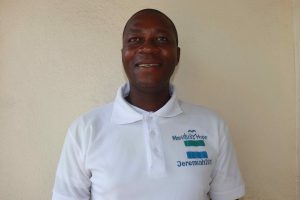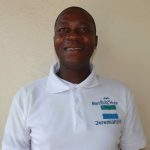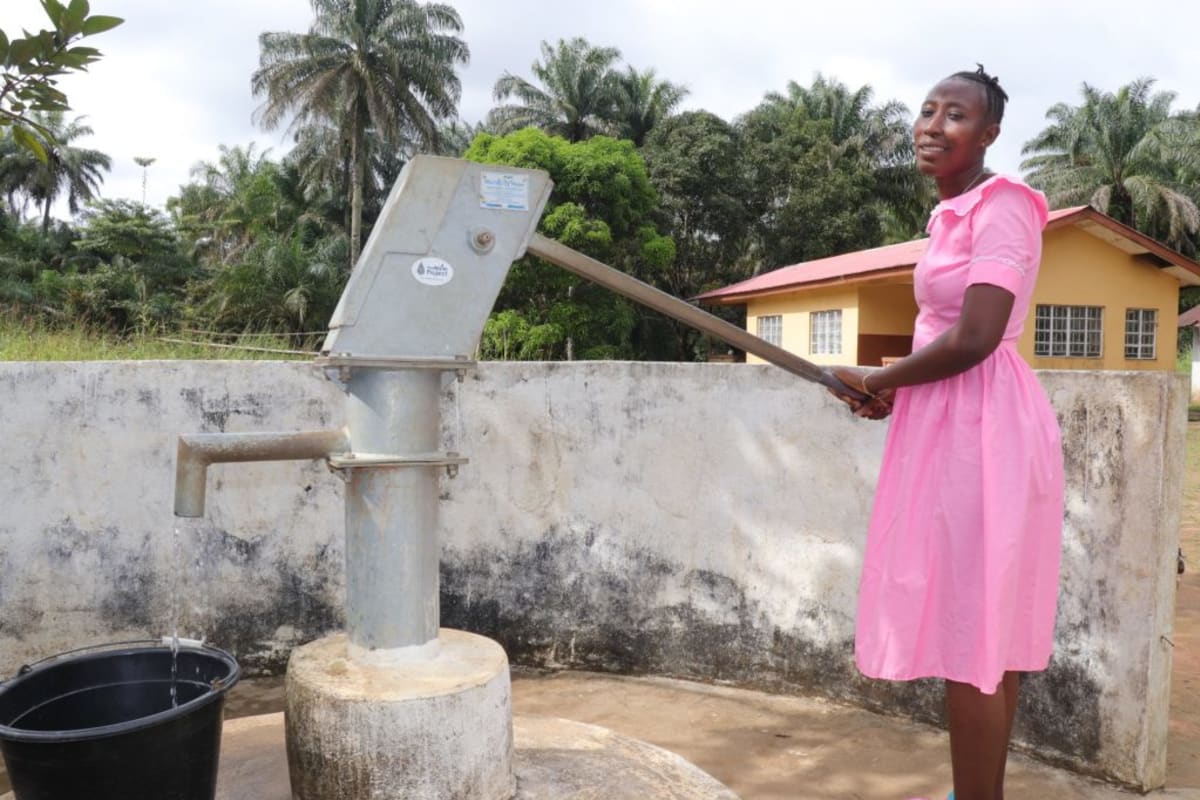The Maternal Child Health Center of Mathen is a vital resource for the community and its families. Only two staff nurses run the center twenty-four hours a day, seven days a week, providing pediatric and labor and delivery services to the community. All health care services require water; severe risks and complications follow without it.
The dug well with a hand pump, initially built by the government in 1998, should meet the daily water needs of the 174 community members, staff, and patients that rely on it. Instead, its malfunction has left everyone without sufficient, clean water.
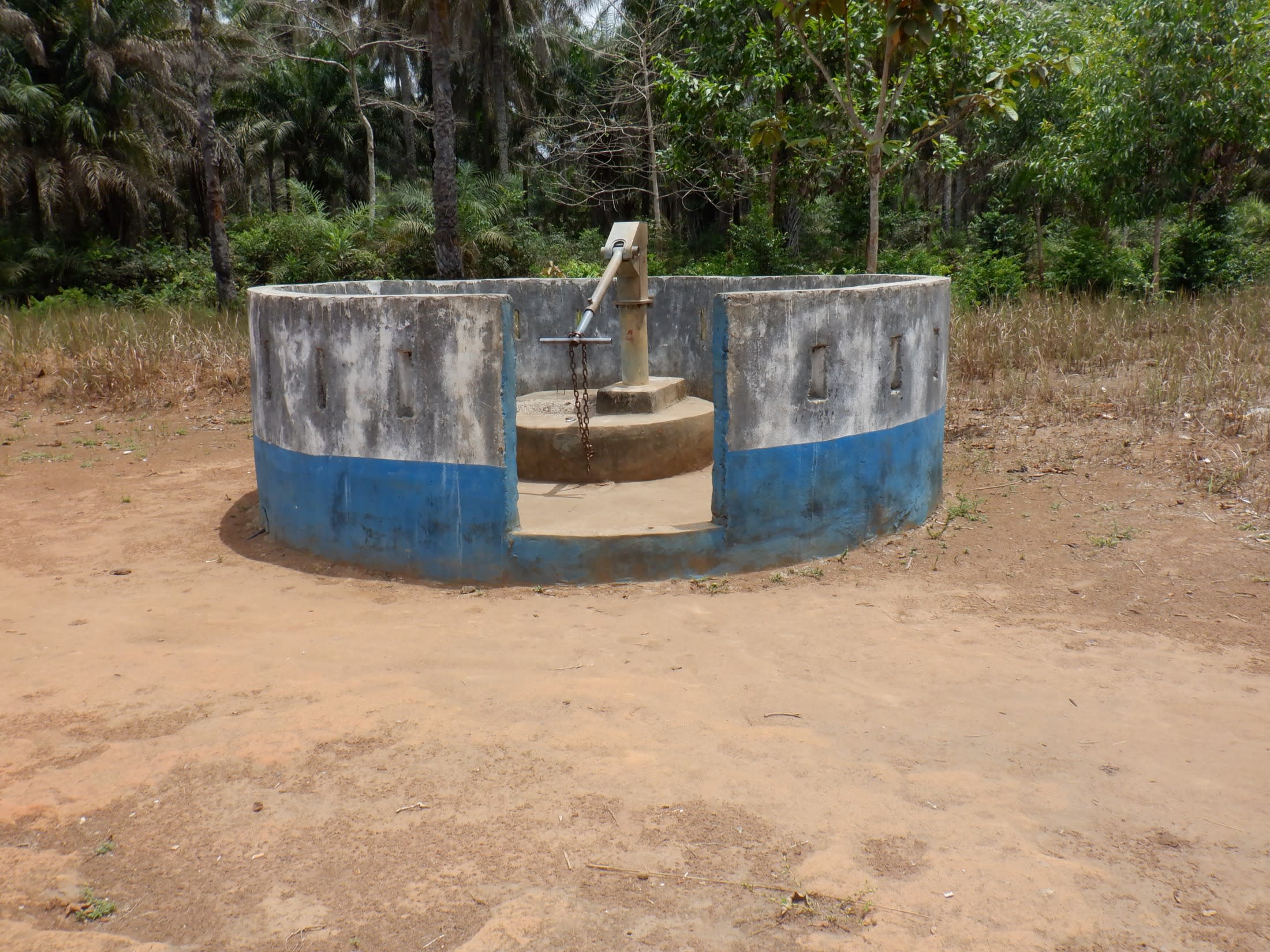
In its current state, the well (shown above, locked) faces various issues that make getting water a real challenge. It is affected by seasonal changes that lower water levels or deplete them entirely during the dry season (March-May). Rarely, when water is found, it's contaminated and hurts those it is meant to serve by causing other water-related illnesses.
The well desperately needs rehabilitation. We hope to drill it deeper, flush it out, rebuild the well pad, install a new pump, and chlorinate the water so the health center and the community can adequately access safe water and essential health services can continue.
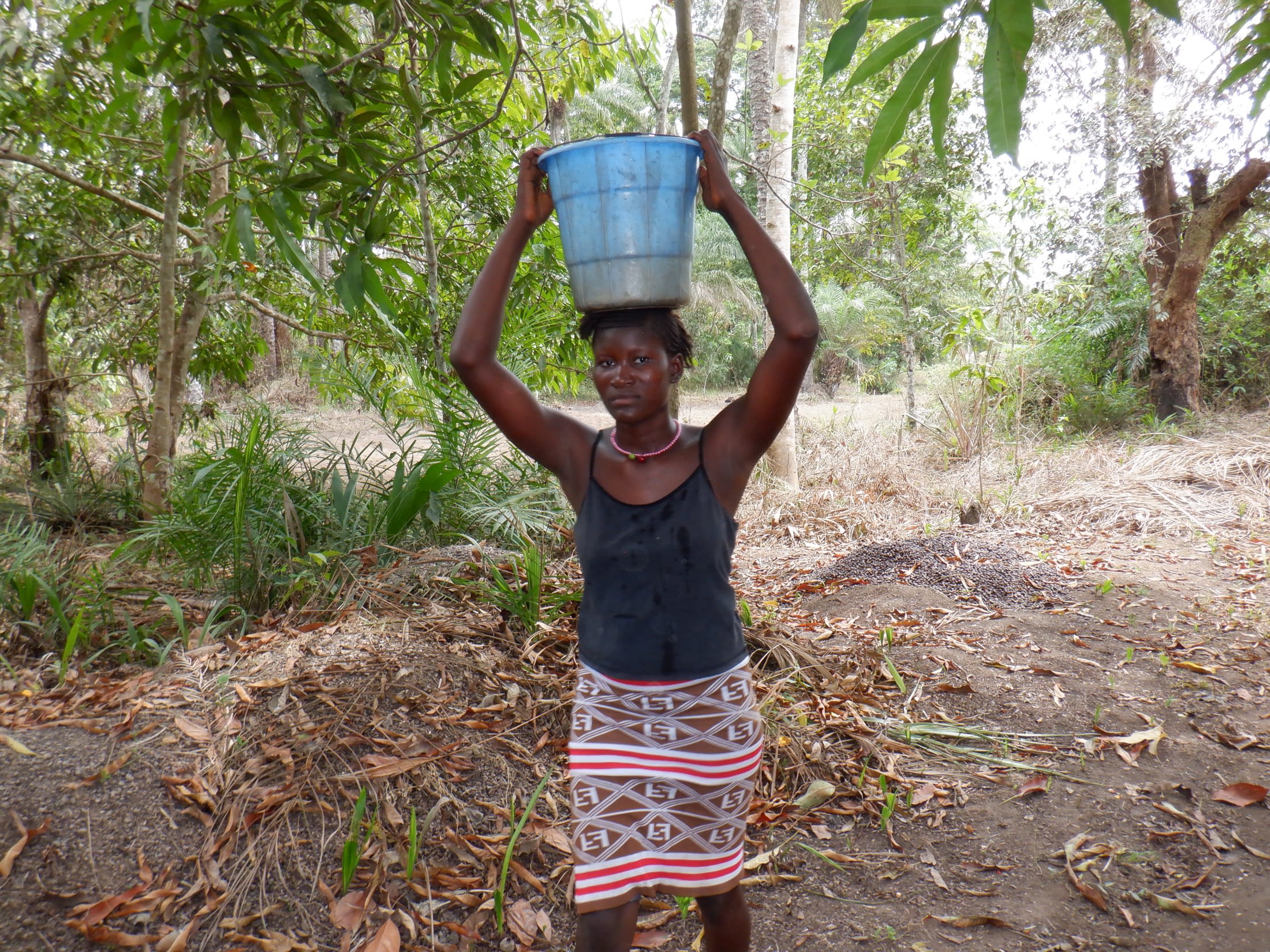
Currently, when the well runs out of water, the nurses and community members must walk to a dug hole in the swamp a long distance away. It is open to contamination from humans and animals alike, which is apparent from the water's cloudy color and bad taste.
Not only does the trip to the swamp cost the nurses valuable time and energy, but it takes them away from the clinic, leaving community members vulnerable, especially if an emergency arises. The nurses' only alternative is to pay a few community members to fetch water for them or to demand that patients' families bring water.
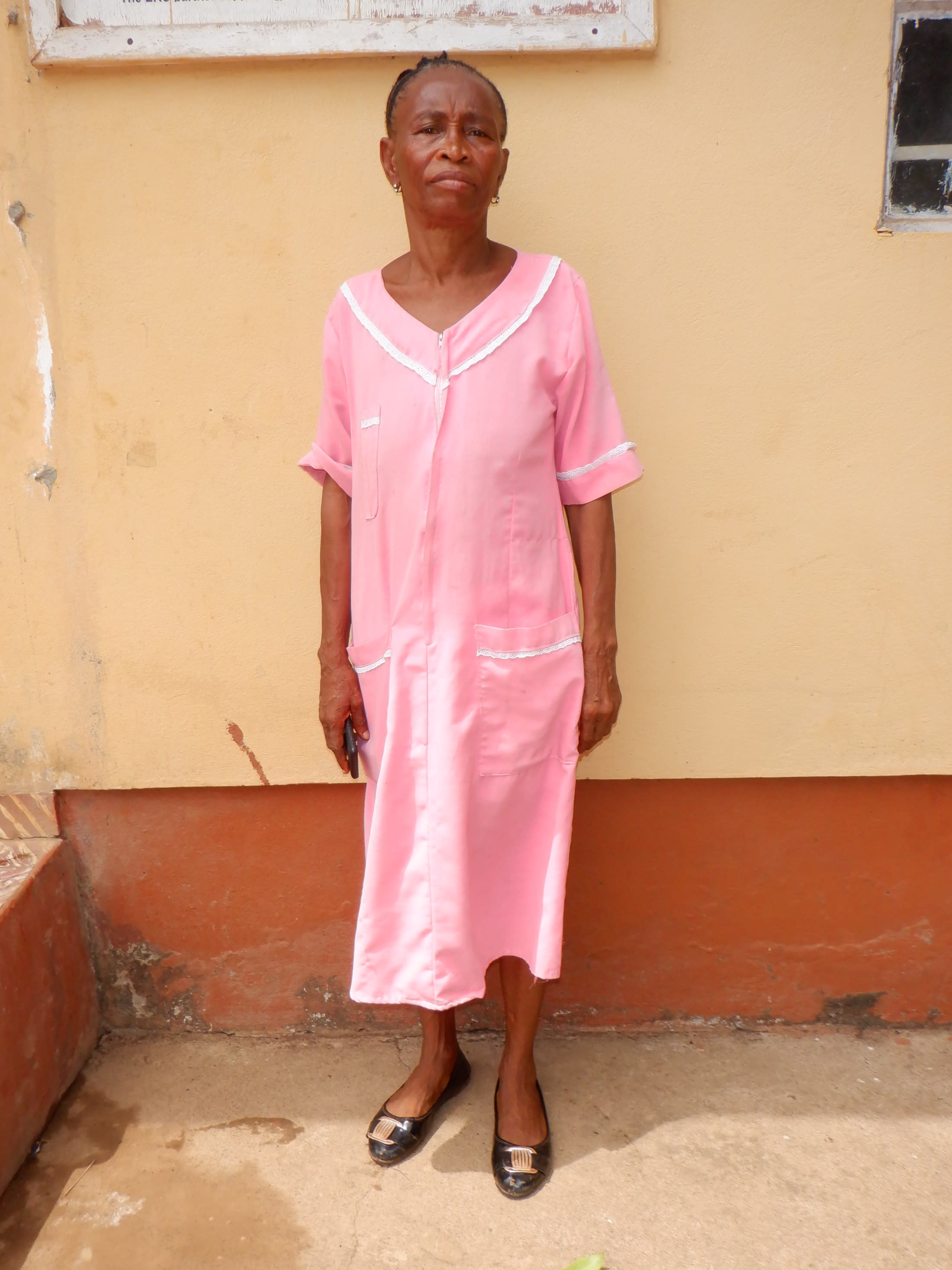
"The water situation in this community is not easy," shared Florence Kamara, 58, one of the clinic nurses (shown above). "I normally go down to the stream to fetch water. This is really a burden because the distance is far."
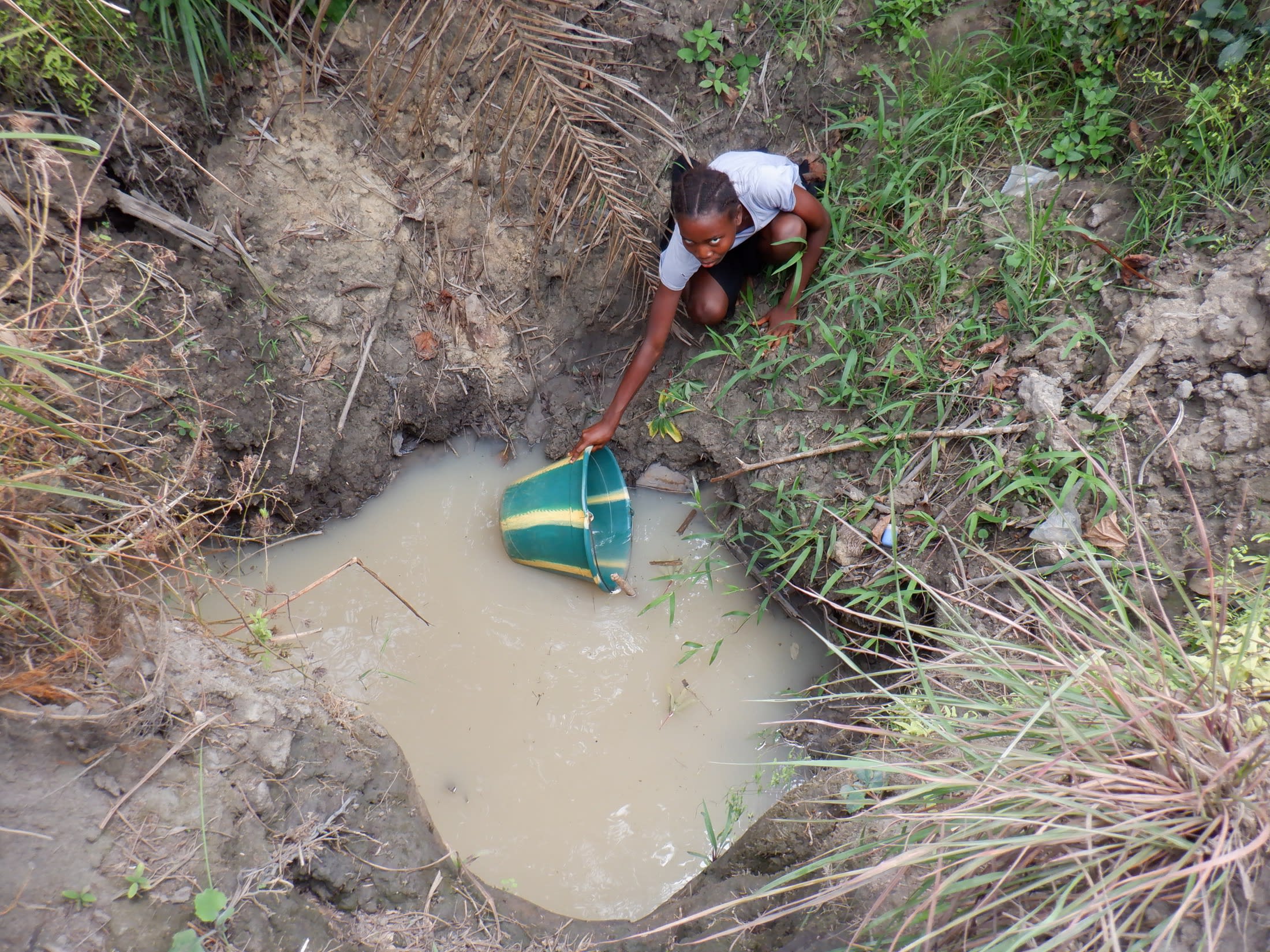
Hannah S., a 14-year-old from the community (shown above collecting water from the swamp), said, "The well is presently broken down. We must pump for some time before water ever comes."
She continued, "Presently, I must fetch water from the alternate source. Fetching water from this source is not easy. This is because the distance to the stream is far. Carrying water containers from the water point to my house is very strenuous."
Without essential water, health services become impossible. Labor, deliveries, and even basic treatments like mixing ORS (Oral Rehydration Solution) for those suffering from diarrhea or treatments for fever or malaria are all much more difficult or risky. And this is before considering the nurses' inability to use water for cooking meals or cleaning the facilities as needed or community members' strain.
It is time for this community to have a reliable water source that will provide the life-giving water needed for medical care and for daily life to become less strenuous.
Here’s what we’re going to do about it:
Well Rehabilitation
The well marked for this overhaul is dry for a few months every year and needs major work to supply adequate, clean water to the community year round. The pump will be removed, and a hand auger will be lowered inside and powered by a drill team. This hand auger will allow the team to drill several meters deeper to hit a sufficient water column that will ensure the well supplies water throughout all seasons.
As the team drills, casing will be installed, transforming the bottom of this hand-dug well into a borehole. PVC piping will connect this lower system directly to the pump, a construction that we know will also improve the quality of water.
Once this plan is implemented, everyone within the community will have access to safe drinking water in both quality and quantity, even through the dry months.
Hygiene and Sanitation Training
There will be hygiene and sanitation training sessions offered for three days in a row.
After our visit, the hygiene and sanitation trainer decided it would be best to teach community members how to build a tippy tap (a hand-washing station built with a jerrycan, string, and sticks). They will use these tippy taps for handwashing demonstrations, and will also teach about other tools like dish racks and the importance of properly penning in animals.
These trainings will also strengthen the water user committee that manages and maintains this well. They enforce proper behavior and report to us whenever they need our help solving a serious problem, like a pump breakdown.

 Borehole Well and Hand Pump
Borehole Well and Hand Pump









